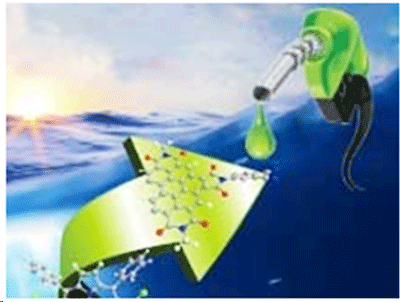|
NOVIDADES
A group of European chemists including Prof. Joost Reek of the University of Amsterdam's research priority area Sustainable Chemistry has recently published a whitepaper on Solar-Driven Chemistry (pdf download). They show that it is possible, and even necessary for a sustainable future, to drive chemical reactions using solar energy. In an overview of less than twenty pages the chemists identify the opportunities and challenges of this visionary concept that could in the long run replace fossil fuels as the main source of fuels, chemicals and materials. The whitepaper results from presentations at a brainstorming workshop on Solar-driven Chemistry in Berlin organized by the Deutsche Forschungsgemeinschaft (DFG) and the European Association of Chemical and Molecular Sciences (EuCheMS). Prof. Joost Reek of the Van 't Hoff Institute for Molecular Sciences was among the international experts participating in this workshop.  Chemistry driven by the sun. Professor Reek is a leading researcher in the field of solar-driven chemistry, which was underlined earlier this year by the publication in Science Advances on a bio-inspired enzyme-mimicking catalyst for hydrogen production. More recently he acted as a guest editor of a special ChemPlusChem edition on Catalytic Systems for Water Splitting. He is the coordinator of the University of Amsterdam's Research Priority Area Sustainable Chemistry and headed the artificial photosynthesis research theme of the Dutch national research initiative BioSolarCells. According to professor Reek, the EuCheMS whitepaper identifies the much needed scientific breakthroughs that are crucial for making Solar-Driven chemistry a future reality. "It reflects the findings of our Sustainable Chemistry research at UvA where we combine the efforts of dozens of researchers in homogeneous and heterogeneous catalysis, molecular photonics and theoretical chemistry. We do make progress on both fundamental and technological levels, but much more effort is needed to establish a really meaningful European solar-driven chemical community in research as well as industry". Reek expects the whitepaper will enable EuCheMS to raise awareness with EU policymakers which will hopefully result in the allocation of future research funds. The latter two have teamed up with UvA and Vrije Universiteit Amsterdam in the Solardam consortium to harvest energy from the sun by generating electricity and fuel through combinations of photovoltaics, photocatalysis and photosynthesis. As professor Van Reek points out, this is an illustration of the multidisciplinary effort that is essential in the field of solar-driven chemistry. Solar-Driven Chemistry entails a long-term innovative scientific and technological endeavour but it will enable the progressive substitution of fossil fuels. It will also have a large impact on the reduction of greenhouse gas emissions, with huge environmental, societal and economic benefits. According to the whitepaper solar-driven chemistry can increase the competitiveness and sustainability of the European industrial system. It can create knowledge-driven competitiveness for Europe’s industrial production, while preserving jobs and the environment. However, it does require strong, concerted and unconventional support for basic and applied research. The whitepaper calls for a large, integrated and synergic approach encompassing catalysis, electrochemistry, photochemistry, and nanosciences, in concert with semiconductor physics, engineering, biosciences and social sciences. University of Amsterdam. Posted: Nov 08, 2016. |
|||||||||||||||||||||||||